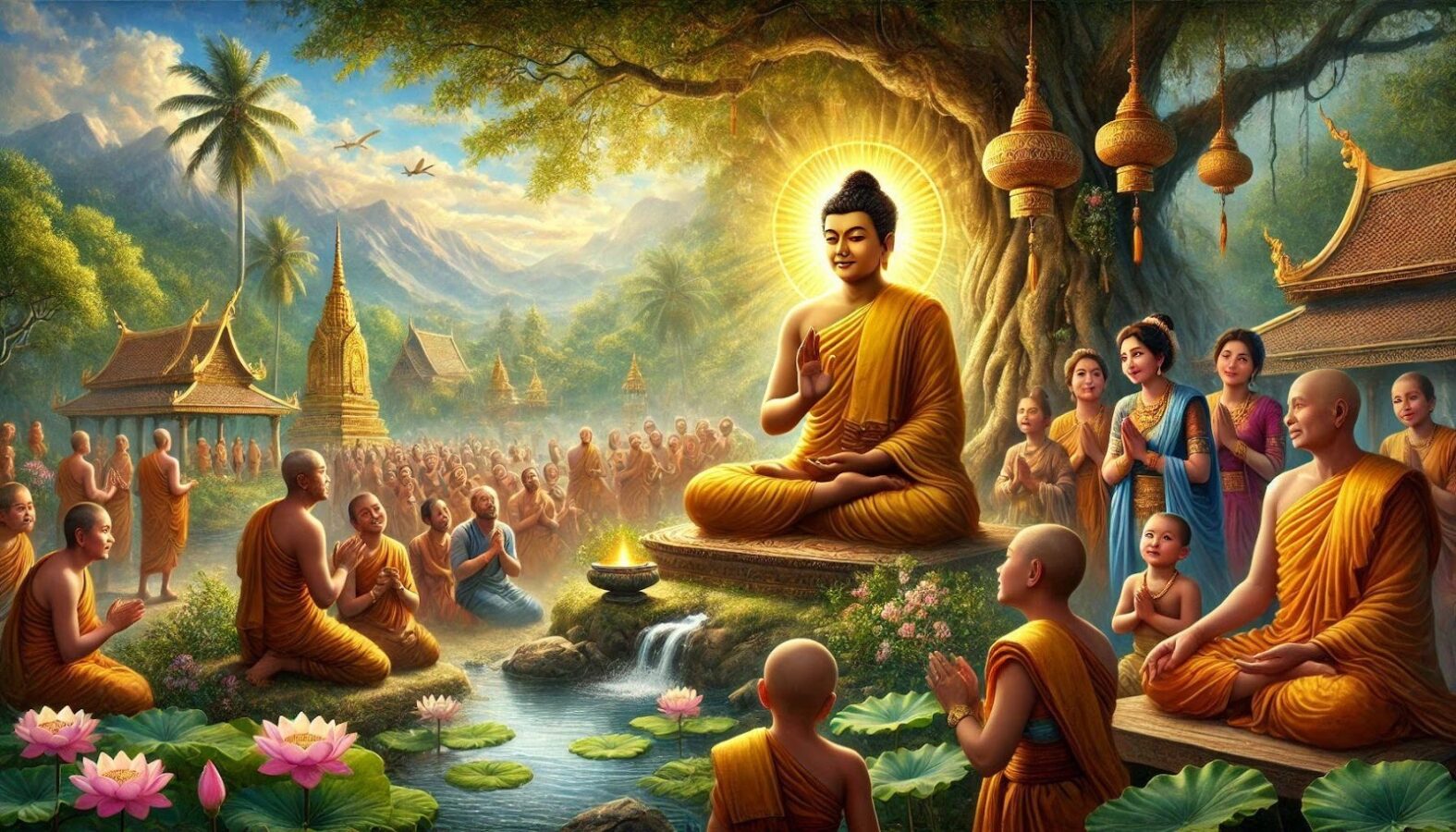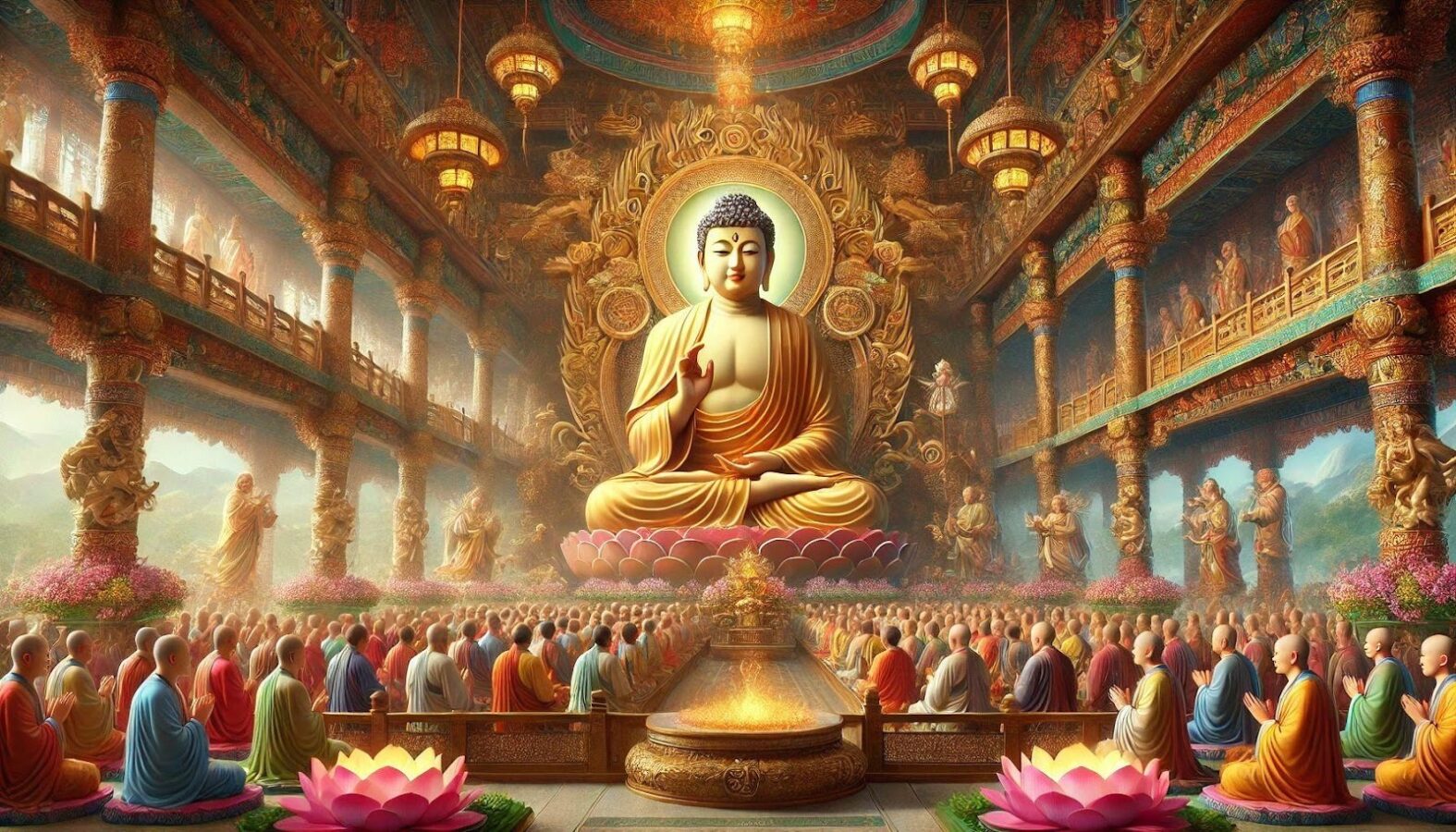
Date: 01/27/2024 01/28/2024
Location: Star Lake Meditation Center
Teacher: Lucy Zhou
Dharma talk
One-shot breakthrough method – the view of Mahasubbata Sutta
Once, the Buddha returned to his hometown of Kapilavastu and stayed in Nigrodharama park in the south of the city.
This morning, after entering the city to beg for food, the Buddha stopped by the Ka^laks!emakasya-sakyasya-viha^ra. At that time, the venerable Ananda and many bhikkhus were mending clothes. When he saw the Buddha coming, he came out to greet him and told him that they were mending clothes here.
The Buddha told Ananda:
“Ananda! Don’t be happy with the pleasures of the group. A bhikkhu who enjoys the pleasures of the crowd really cannot experience the pleasures of detachment, silence, stillness, and righteousness, nor can he attain the temporary liberation of the mind, nor can he attain the permanent liberation of the stable mind. It is possible only for a bhikkhu who can make a point of being alone from the crowd. Why? Because I do not see anything that makes people crave joy, or when it changes, it does not cause sorrow and suffering in life. Therefore, I attain liberation from the state of craving for external things, which is beyond all forms of thought and all forms of external emptiness.
Ananda! When I have settled in the state of freedom from craving for external objects, my mind becomes joyful and gives rise to clear awareness, and from this clear and focused awareness, I become joyful and happy and enter into meditation. Ananda! If any bhikkhus, bhikkhunis, upasaka, upasika come to see me, I’ll teach them to keep away from the herd, to keep away from desire and greed, and to rejoice in the absence of desire, and exhort them to practice meditation.
Ananda! If there is a bhikkhu who is willing to learn more about the view of emptiness, he should make his heart stable, quiet, and focused and entered into meditation. When the mind is settled in meditation, then he should use the power of meditation to view inner emptiness. If someone wants to practice viewing inner emptiness without first entering meditation, it is just a waste of effort.
Ananda! How does one become stable, quiet, focused and enter into meditation? A bhikkhu should be free from desire, from evil and unwholesome dharmas, and enter the first meditation with joy and happiness, or go further into the second, third, or fourth meditation. Once he has entered meditation, he should use this meditation as the basis for practising the view of inner emptiness.
In the course of the view of inner emptiness, if the mind is shaken and unable to achieve the view of inner emptiness or cannot remain stable, confident and determined, one should be fully aware of such a situation and turn to the view of external emptiness.
If, in the course of practising the view of external emptiness, the mind is still shaken and cannot achieve the view of out emptiness or cannot remain stable, confident and determined, one should be fully aware of such a situation and turn to the view of inner and external emptiness.
If in the process of practising the view of inner and external emptiness, the mind is still shaken, unable to achieve the view of inner and external emptiness, or unable to maintain stability, self-confidence and constancy, one should be fully aware of such a situation and turn to the practice of peaceful immobility.
If in the course of the practice of peaceful immobility, the mind is still shaken, unable to achieve the peaceful immobility, or unable to maintain stability, confidence and constancy, one should be fully aware of such a situation and go back to the basic meditation before the initial practice of inner space meditation, to regain the concentration.
After re-establishing the power of meditation, continue to practice empty meditation until you are fully aware that you have firmly achieved inner emptiness, outer emptiness, inner and external emptiness, and tranquillity and immobility.
When the bhikkhu is settled in such emptiness, he can walk, live, sit, and lie with the full awareness that he is free from craving, sorrow and suffering and free from other evil unwholesome dharmas. Any talk or thought will only lead to righteous liberation and nirvana.
Ananda! The five desires that arise from the eyes, ears, nose, tongue, and body are impermanent and changeable and should be abandoned. The bhikkhu should be fully aware and not be stirred by the five desires in his mind and indeed be free from them.
Ananda! The birth and death of the five elements, such as sex, perception, thought, action, and consciousness, are not free from attachment. The bhikkhu should be fully aware of them. From the view of the five aggregates, the collection of the five aggregates, and the extinction of the five aggregates, he should eliminate the arrogance.
Ananda! What I have told you above is all good dharma towards the sage and transcends the world. By learning this, you will be free from the control of the evil Lord.
Then, the Buddha said to the venerable Ananda that if one lives alone in a sparsely populated forest or cemetery, away from the crowd, but with too many visitors, one cannot stay away from the crowd in one’s heart, one will still not have peace in one’s mind, and one will still be in suffering due to craving.

